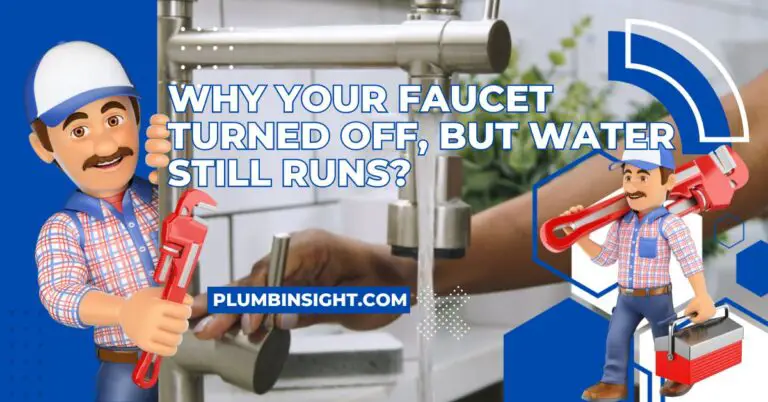Rheem Water Heater Problems; All Problems With Fixes Explained
Quick Read; Common Rheem water heater problems include pilot light failures, leaks, inadequate hot water, and unusual noises. Troubleshoot these issues by checking components, flushing the tank, or seeking professional help for complex repairs. Preventive maintenance can ensure your Rheem water heater operates efficiently and reliably.
Exploring Rheem Water Heater Problems: From pilot light struggles to leaky tanks, our article delves into common issues that can disrupt your daily routine. Discover troubleshooting tips, preventive measures, and effective solutions to ensure your Rheem water heater operates flawlessly, providing the consistent comfort you expect.
Table of Contents
Is Rheem water heater a good brand?

Yes, Rheem is generally considered a reputable and reliable brand for water heaters. With a history spanning decades, Rheem has built a strong reputation for producing diverse water heater models that offer good performance, durability, and energy efficiency.
Many customers trust Rheem for consistent hot water solutions and appreciate their availability of replacement parts. While there might be some variability in model quality and potential for repairs, Rheem’s brand recognition and long-standing presence in the industry make it a good choice for water heaters.
What are common Rheem water heater problems?
Common problems with Rheem water heaters can vary depending on the model and type of water heater you have, but some issues are more frequently reported. Here are a few common problems that Rheem water heater users might encounter:
Pilot Light Issues: The pilot light might not ignite or stay lit, which can prevent the water heater from producing hot water.
No Hot Water: Lack of hot water could be due to a variety of reasons, such as a faulty heating element, thermostat issues, or a malfunctioning gas valve.
Inadequate Hot Water: If your water heater isn’t producing enough hot water, it could be related to undersized equipment, sediment buildup in the tank, or a malfunctioning thermostat.
Leaking: Leaks can occur in different parts of the water heater, such as the tank, valves, or connections, and they need to be addressed promptly to prevent water damage.
Strange Noises: Unusual noises like popping, cracking, or rumbling can indicate sediment buildup in the tank or other internal issues.
Rusty or Discolored Water: Rusty or discolored water coming from the hot water tap could be a sign of corrosion inside the tank.
High Energy Bills: If your energy bills suddenly increase, it could be due to inefficiencies in the water heater, like a malfunctioning thermostat or heating element.
Pressure Relief Valve Issues: A faulty pressure relief valve can lead to pressure buildup, which can be dangerous. These valves might leak or become stuck.
Electrical Problems: Electric water heaters can experience problems with heating elements, thermostats, or wiring, leading to heating issues.
Corrosion and Tank Failure: Over time, water heaters can experience corrosion, which can lead to tank failure and leaks.
Temperature Fluctuations: Fluctuating water temperatures could be due to thermostat issues or a malfunctioning mixing valve.
Remember that some problems can be resolved with basic troubleshooting or maintenance, but for more complex issues or if you’re unsure, it’s recommended to seek the assistance of a professional plumber or technician to diagnose and address the problem properly.
How to fix Rheem water heater problems?
Fixing Rheem water heater problems depends on the specific issue you’re facing. Here’s a general guide on how to address common problems:
- No Hot Water / Inadequate Hot Water:
- Check the thermostat settings to ensure they are set to the desired temperature.
- For electric water heaters, test the heating elements using a multimeter. Replace any faulty elements.
- For gas water heaters, ensure the pilot light is lit. If not, relight it according to the manufacturer’s instructions.
- Flush the tank to remove sediment buildup that can affect heating efficiency.
- Pilot Light Issues:
- Relight the pilot light according to the manufacturer’s instructions.
- If the pilot light won’t stay lit, clean or replace the thermocouple.
- Leaking:
- Determine the source of the leak. It could be from valves, connections, or the tank itself.
- Tighten loose connections. Replace faulty valves or components causing the leak.
- If the tank is leaking, it may need to be replaced.
- Strange Noises:
- Flushing the tank to remove sediment buildup can often resolve noises.
- If noises persist, check if any components (heating elements, anode rod) need replacement.
- Rusty or Discolored Water:
- Flush the tank to remove sediment and potentially improve water quality.
- If the issue persists, consider replacing the anode rod to prevent corrosion.
- Pressure Relief Valve Issues:
- Test the pressure relief valve by lifting the lever slightly. If water flows, it’s working.
- If the valve doesn’t seal after testing, replace it.
- High Energy Bills:
- Check thermostat settings. Lowering the temperature can help save energy.
- Insulate hot water pipes to reduce heat loss.
- Corrosion and Tank Failure:
- If corrosion is severe and causing leaks, the tank may need replacement.
- Regular maintenance and flushing can help prevent corrosion.
- Electrical Problems:
- Test heating elements and thermostats using a multimeter. Replace faulty components.
- Temperature Fluctuations:
- Check and adjust the thermostat settings.
- Ensure there are no cross-connections or mixing valve issues causing temperature fluctuations.
Remember, if you’re uncomfortable with any troubleshooting or repair steps, or if the problem persists, it’s best to consult a professional plumber or technician. Safety is paramount, and improper repairs can lead to further issues or hazards.
Bradford White vs Rheem vs AO Smith – Comparing Water Heater Brands
plumbinsight.com
What are Rheem water heater troubleshooting codes?

- Code 10: False Flame Detection: This indicates the water heater’s inability to detect a flame during ignition attempts. Possible causes include a malfunctioning igniter, a dirty flame sensor, or insufficient gas supply.
- Code 20: High Limit Fault: The water heater shuts down to prevent overheating when this code appears. It’s triggered by factors like a faulty thermostat, a congested heat exchanger, or a clogged sediment filter.
- Code 31: Room Temp. Thermistor Abnormal: A malfunctioning room temperature thermistor inaccurately reads room temperature. This can stem from a defective thermistor, loose connections, or wiring issues.
- Code 33: Overheat Thermistor Abnormal: The overheat thermistor’s incorrect temperature reading triggers this code. Causes include a faulty thermistor, loose connections, or wiring problems.
- Code 61: Gas Solenoid Valves Circuit Abnormal: A problem with gas solenoid valves prompts this code. This might be due to a malfunctioning solenoid valve, loose connections, or wiring issues.
When encountering these codes, prompt troubleshooting is crucial. If unsure, seek help from a qualified technician.
Additional Tips for Troubleshooting Rheem Water Heater Problems:
- Confirm Gas Supply: Ensure the gas supply is on and the gas line isn’t blocked.
- Check Electrical Connections: Ensure all electrical connections are secure and there are no loose wires.
- Clean Flame Sensor: Over time, the flame sensor can accumulate dirt, hindering ignition. Cleaning can rectify this.
- Replace Igniter: A faulty igniter cannot ignite the gas. Replacement might be necessary.
- Swap Thermostat: A malfunctioning thermostat can disrupt temperature regulation and might require replacement.
By following these guidelines, you can effectively troubleshoot common Rheem water heater problems, ensuring optimal functionality.
What are the Pros and Cons of Rheem water heaters?
Here’s a table outlining the pros and cons of Rheem water heaters, followed by a description for each point:
| Pros | Cons |
|---|---|
| 1. Diverse Range of Models | 1. Variability in Quality |
| 2. Energy-Efficient Options | 2. Potential for Repair Costs |
| 3. Good Performance and Durability | 3. Limited Warranties |
| 4. Trusted Brand Reputation | 4. Complex Repairs |
| 5. Availability of Replacement Parts | 5. Possible Temperature Fluctuations |
Pros:
- Diverse Range of Models: Rheem offers a wide variety of water heater models, catering to different needs, preferences, and budgets.
- Energy-Efficient Options: Many Rheem water heaters are designed to be energy-efficient, helping you save on utility bills while reducing environmental impact.
- Good Performance and Durability: Rheem water heaters are generally known for their reliable performance and durability, offering consistent hot water for your needs.
- Trusted Brand Reputation: Rheem is a reputable brand with a long history in the industry, known for producing quality water heaters.
- Availability of Replacement Parts: Rheem water heaters have a relatively good availability of replacement parts, making repairs easier.
Cons:
- Variability in Quality: While Rheem has a good reputation, there can be some variability in the quality of different models, leading to potential differences in performance and durability.
- Potential for Repair Costs: Water heaters can require repairs over time, and depending on the issue, repair costs might be a consideration.
- Limited Warranties: Some Rheem models may come with limited warranties, and understanding the warranty terms is important for long-term cost considerations.
- Complex Repairs: Certain repairs on water heaters can be complex and might require professional assistance.
- Possible Temperature Fluctuations: Some users have reported temperature fluctuations in Rheem water heaters, potentially requiring adjustments or maintenance.
Rheem Proterra vs. Performance Platinum; All You Need To know
plumbinsight.com



